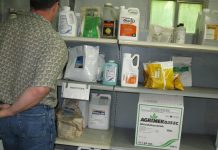
The findings support other epidemiological studies pointing to some outcomes of the development of asthma and stress, particularly work related stress, the researchers.
They base their findings on approximately 7000 working adults, who responded to the German Socio-Economic Panel Study-an annual representative survey of the German population-in 2009 and 2011, when questions regarding asthma were asked.
The survey covered a time of severe economic downturn across Europe, which began in 2008. And all respondents were asked in 2009 how likely they think it is they might lose their job over the next 2 yrs.
Their answers were graded in 10% increments from 0-100%, and split into high versus low or no threat. The researchers used a cut-off reason for a 50% or greater probability of unemployment versus a less than 50% probability.
Between 2009 and 2011, 105 new installments of asthma were diagnosed among the survey group, half of whom were women.
Those who felt that the probability of losing their job over the next 2 yrs was high tended to be slightly younger, had reached a lower degree of education, a lower monthly income, and were more likely to be single compared to those who felt the danger was low (2787) or non-existent (2593).
And people who didn’t feel their tenure was secure were less likely to be on permanent contracts and much more likely to have been identified as having depression.
After taking into account various sociodemographic factors, depression, and lifestyle, case study established that asthma risk seemed to rise with increasing job insecurity. For each 25% rise in the perceived threat of job loss, the chance of asthma rose by 24%.
Among those who believed that these were certainly going to lose their job the risk of asthma rose to 60% compared with those who thought job loss was unlikely or non-existent.
This is definitely an observational study, so no definitive conclusions can be drawn about expected outcomes. But the researchers they are saying their answers are “consistent with epidemiological studies, that have shown that psychological stress particularly work related stress, may be risks for new onset asthma.”
And they add: “Our findings may also give a possible reason behind the increased prevalence of respiratory symptoms throughout the recent financial crisis in the united kingdom.”

































